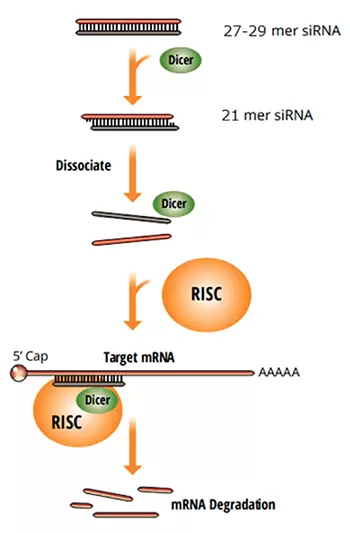siRNA
siRNA-based Gene Knockdown
27-29 mer siRNA - A Potent Mechanism for Gene Silencing
Small interfering RNA (siRNA), also known as short interfering RNA, is a class of 20-29 nucleotide, double-stranded RNA molecules that play a variety of roles in biological processes. siRNAs were initially discovered to be involved in the RNA interference (RNAi) pathway, silencing the expression of specific genes through post-transcriptional mechanisms. Recent studies demonstrate that siRNAs also act in other RNA related pathways, such as anti-viral mechanisms and shaping the chromatin structure in a genome. The complexity of these pathways has only recently been elucidated.
Since the initial demonstration of its functionality in mammalian cells, siRNA technology has been an indispensable tool in functional genomics and has been predicted to become a novel form of future medicine.
To enable efficient siRNA-based gene knockdown, BioCat offers human, mouse and rat siRNA 27mer Oligo Duplexes with genome-wide coverage and lentiviral siRNA cloning and expression vectors.

Short RNAs that are long enough to serve as Dicer substrates (D-siRNA) can often evoke more potent RNA interference than the corresponding 21 mer siRNAs. This is probably a consequence of the physical handoff of the Dicer-produced siRNAs to the RNA-induced silencing complex.